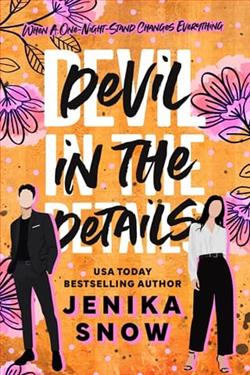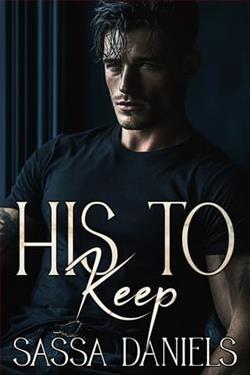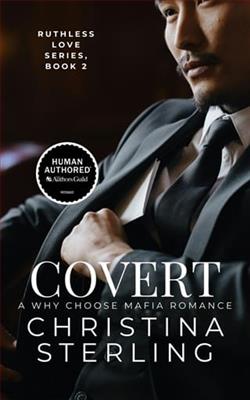Page 5 of Good Duke Gone Hard
“Nor a whippersnapper.” He jumped off his chair, ducked his head protecting it with his right and twisting to the side.
“A southpaw?”
“Quick observation. I see you haven’t lost all memories and knowledge. Glad to know you’re no mindless wooden spoon. I wasn’t sure based on your chess game,”
Jonathan popped up and mirrored Lyle’s posture, light on his feet. “At least you’re not bilking me for all I’m worth. We both know you could.” Smiling, his body decided it felt right to engage in the playfight. He touched his left foot forward and feigned a jab then crossed right. Lyle ducked and swatted the hand away.
Then Lyle feinted left and crossed right. Jonathan tapped it away and then stood back surveying his opponent.
“I can’t remember why I know how to do that.” Jonathan mused.
Lyle exhaled and repeated his earlier phrase. “It must be hard.”
Jonathan raised a brow.
“Not knowing.”
Jonathan waited for him to continue. He didn’t know if Lyle was going to spring him or spar him. Unexplainably, Lyle punched him in the gut in a different fashion.
“But you know, you’re a man. All men know how to fight…ish. Just…be who you want to be now. Don’t worry about who you were. The you of the past made mistakes. Maybe you’ll never know them. Maybe you will know them again, but then you’ll never be able to forget them. What’s worse?”
Jonathan shrugged, unsure of how to navigate deep waters with the nigh stranger before him.
Unperturbed, Lyle continued. “It doesn’t matter what’s worse. All you have is what is. And right now you don’t know who you were. Too bad. Move on. For now. If things change, then deal with that then.”
Jonathan nodded slowly, accepting the simple message from the offhand philosopher. “That may be the best advice I’ve received so far.”
“Can’t be. The best advice you’ll ever receive is to not forget to go for the body.” With that he ducked and feigned two jabs to Jonathan’s left kidney, then bobbed back up and slapped him on the shoulder.
Lyle pointed at the chessboard, “Shall we call it a day?” he ventured.
“That’s a fine plan. I seem to have lost the strategy.”
“All good ol’ chap.” Lyle thumped him on the back. “You’ll pick it up on your turn tomorrow.”
Lyle turned to head out the door and passed a footman delivering a letter to Jonathan. He paused to pick some imaginary flint off of his waistcoat and then adjusted his cuffs while watching Jonathan’s reaction to seeing the name on the letter. When he discreetly observed Jonathan’s demeanor unchanged, he inquired, “Tomorrow then?”
Jonathan confirmed, “See you tomorrow.” Then out of character, or perhaps within his forgotten character, he added, “Bring your best game though. I’ve no time for gibfaced foozlers.”
Lyle barked a laugh as he made his egress.
Chapter 3
THENEXTMORNING,AFTERpainting hadn’t helped to calm her, Margaret made her way down to the stables to ride away some of her energy. She didn’t want to be a bucket of nerves for the upcoming house party her mother was hosting.
As Margaret closed the distance to the stables, she could hear the horses whinnying and imagined herself galloping across the fields, leaving behind unanswered questions and unmade decisions.
But those pesky questions and decisions would plague her until the breeze could whip them away.
She had been avoiding being alone with Jonathan, not really knowing who he was, what to expect, or what to say. She couldn’t decide which memories to share with him and which to let go, and the indecision was creating a hollow void in her heart. Was she being more fair to herself if she shared or hid memories? Was she being fair to Jonathan?
The buren she carried weighed heavily. She knew it was up to her to help Jonathan, despite no one explicitly having said so. It would do him good to tour the estates, be reminded of–some–past activities, and see the part of his memory that had finally flashed back to him, so the doctor had suggested in letters that Jonathan had shared with them.
But still she had avoided him. Indecision, however, was not hermodus operandi. Like, when she was hungry. She wasn’t one of those women who couldn’t decide what to eat. She had a tried and true method for knowing exactly when she wanted chicken or beef. And she hadn’t been in the mood for sausages lately.
In fact, that was the reason she was still single at two-and-twenty. It wasn’t for want of offers. She had refused them all, every season since she was eighteen. She was waiting for the perfect love match, and she knew she would know it when she felt it. Or so she thought.
Love was the only good reason to marry, according to Margaret. Her mother had been patient the first few seasons, but now expected that Margaret marry by the end of next season. It was up to Margaret to accept an offer. She knew she would receive offers. It wasn’t even arrogant to think it. She was the sister of a duke with a hefty dowry, and–according to more than one poet–possessed the likeness of an angel.















